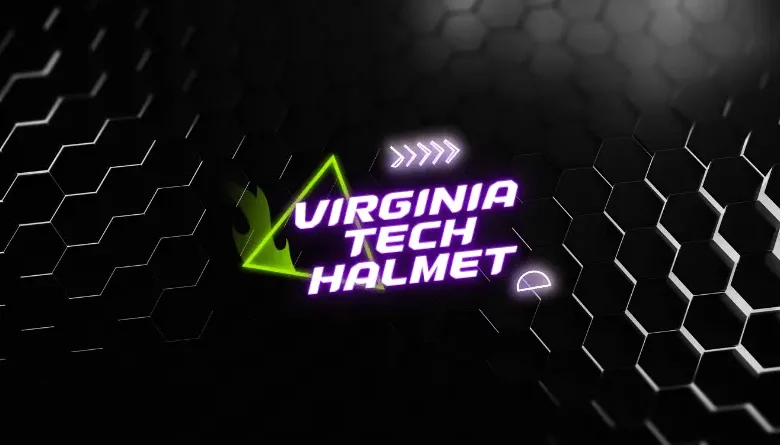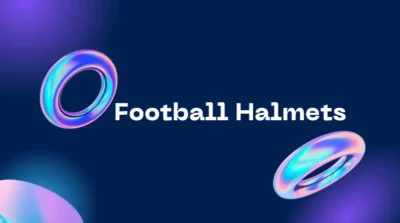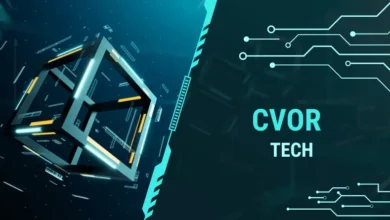Virginia Tech Football Helmet Ratings


In the last few years, the issue of player safety in contact sports like American football has gained remarkable attention. The danger associated with head injuries and shock has prompted scientists, researchers, and sports groups to try to find innovative ways to reduce the potential harm to athletes. Virginia Tech, a famous institution for its engineering and biomechanics research, has developed a comprehensive system to estimate the safety and effectiveness of football helmets. This system, known as the Virginia Tech Football Helmet Ratings, employs careful testing methodologies to provide valuable insights into helmet performance. And aid players, coaches, and manufacturers in making informed decisions to enhance player safety.
Background and Purpose
The primary goal of the Virginia Tech Helmet Lab is to advance helmet safety and reduce head injuries in football. The lab tests football helmets using engineering, biomechanics, and medical expertise. The ultimate aim is to provide players and their teams with unbiased information to guide their choice of helmets and foster a culture of safety.
Testing Methodology
The Virginia Tech Football Helmet Ratings employ a unique technique that involves both laboratory testing and real-world effects. This approach aims to recreate the various impacts players experience in a football game. Thus providing a more accurate representation of helmet performance.
Laboratory Testing
Helmets are subjected to controlled laboratory tests that simulate different impact scenarios. In order to simulate the linear and rotational accelerations experienced by players during collisions, a head form wearing a helmet is dropped onto an anvil during tests. Measurements of head form acceleration are then used to calculate the Head Injury Criterion (HIC) and Rotational Injury Criterion (RIC), which are indicators of the likelihood and severity of head injuries.
Real-World Impact Simulations
The Virginia Tech Helmet Lab confidently combines more than ten years’ worth of real-world head impact data obtained from college football players with careful laboratory testing. This data helps create computational models that simulate real-world impacts and evaluate how well different helmet designs can reduce the forces experienced by players’ heads during games.
Rating System
The Virginia Tech Helmet Ratings provide a simple and informative star rating system that helps players, coaches, and parents understand the relative performance of different helmet models. The ratings are based on a scale of 1 to 5 stars, with a higher number of stars indicating better overall performance in reducing the risk of head injuries.
Impact on Player Safety
The impact of Virginia Tech’s football helmet ratings has been significant. By providing objective data on helmet performance, the ratings empower athletes and their support teams to make informed decisions regarding equipment choices. Players can choose helmets that offer higher levels of protection, coaches can encourage the use of top-rated helmets among their teams. The manufacturers can focus on improving their designs to meet the safety standards set by the Virginia Tech Helmet Lab.
Best football helmet?
Here are a few football helmet models that were known for their safety features:-


VICIS Zero1
The VICIS Zero1 gained attention for its innovative design aimed at reducing impact forces. Its exterior was distinctly flexible and contained a cylindrical component that effectively absorbed and distributed impact force. The helmet received positive reviews for its ability to reduce rotational and linear forces during impacts.
Riddell SPEEDFLEX
The Riddell SPEEDFLEX helmet introduced features such as a flexible facemask attachment, side impact panels, and a ratchet-style chinstrap to improve overall fit and comfort. It aimed to address both linear and rotational impact forces.
Schutt F7
The Schutt F7 helmet features TPU cushioning and a revolutionary Tektonic Plate system that reduces rotational forces by allowing the plates to move independently.
Xenith Shadow XR
Xenith helmets, including the Shadow XR, used a unique shock absorber technology called Adaptive Head Protection. It was designed to provide a custom fit and respond to different impact angles.
SG Helmets
The “Zero1” model from SG Helmets incorporates air-filled cells to boost impact absorption and reduce head-on forces.
Schutt Vengeance
The Schutt Vengeance helmet was known for its TPU cushioning and shell design that aimed to distribute impact forces more evenly. It offered a good balance of protection and comfort.
Football helmet effectiveness depends on factors such as fit, maintenance, player technique, and impact nature. New models may improve safety due to technology advancements and safety standards.
Challenges and Future Directions
The Virginia Tech Football Helmet Ratings may have improved player safety, but it is crucial to acknowledge the ongoing challenges that persist due to the dynamic nature of the sport, evolving helmet technologies, and the need for continuous research. Player safety on the field is paramount, and rating systems must evolve with new research and materials. There is no room for complacency when it comes to the safety of players on the field.
Vtech football?
Virginia Tech’s football program has a storied history dating back to 1892, marked by consistent success in numerous bowl games and conference championships within the ACC.
Stadium
The team plays its home games at Lane Stadium, located on the Virginia Tech campus in Blacksburg, Virginia. The stadium is known for its passionate fan base and has a reputation for being a challenging environment for visiting teams.
Rivalries
The “Commonwealth Clash” is a well-known college football rivalry between Virginia Tech and the University of Virginia. The Commonwealth Cup, which is highly valued by fans of both schools, is the ultimate prize that the teams fiercely compete for.
Successes
Virginia Tech football has experienced its share of success on the field. The Hokies football team boasts a track record of consistently achieving double-digit wins and securing spots in elite bowl games such as the Orange Bowl and Sugar Bowl. Moreover, the program has been instrumental in producing exceptional NFL players and solidifying a formidable football tradition at the university.
Conclusion
In summary, the Virginia Tech Helmet Lab’s ratings use lab testing and real-world simulations to provide valuable insights into helmet performance, promoting safety for players, coaches, and manufacturers in American football and setting an example for other contact sports.




